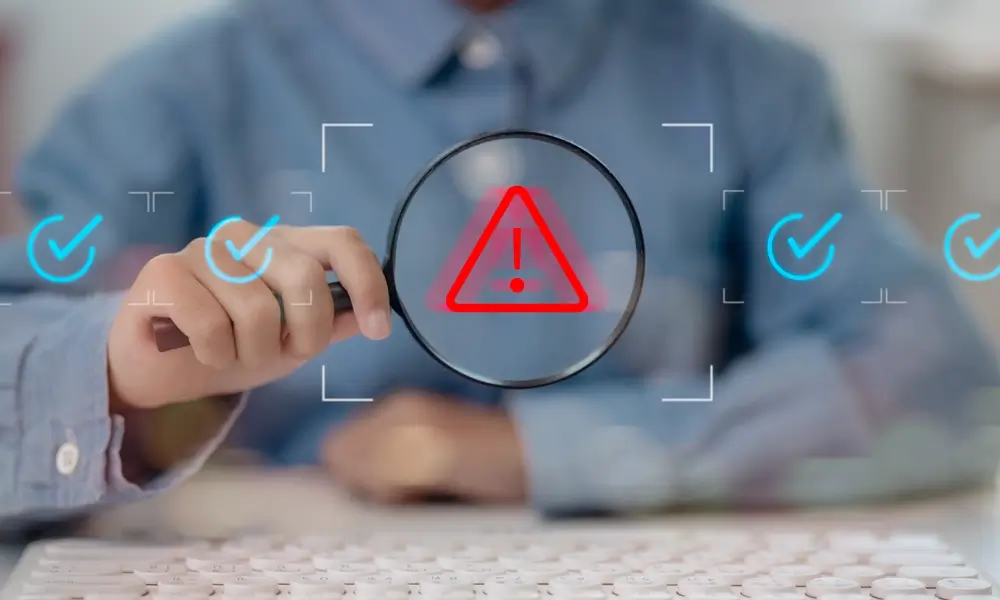Blockchain technology is often linked to cryptocurrencies and digital transactions, but its applications reach far beyond. In the auditing sector, where transparency and accuracy are crucial, blockchain brings advantages that could transform the field.

What is Blockchain, and How Does it Transform Auditing?
Blockchain is a distributed ledger technology that enables the creation of records and transactions in an immutable and verifiable manner. Each transaction or modification is stored in blocks that, once validated, are added to a chain that can only be changed with network consensus, ensuring data security and integrity. This immutability is a game-changer in auditing, offering enhanced precision and trust in processes.
Key Benefits of Blockchain in Auditing
- Data Accuracy
With blockchain, each transaction is automatically verified and recorded in a decentralized system, minimizing risks of errors or data manipulation. This accuracy is critical for auditors who rely on precise information. - Transparency and Traceability
Information stored on a blockchain is readily accessible for real-time auditing. Auditors can review the entire transaction history, quickly identifying discrepancies or irregularities. - Enhanced Security
Known for its robustness, blockchain creates a chain of blocks that are interdependent, making unauthorized changes challenging. This helps protect data against fraud and cyberattacks. - Automation with Smart Contracts
Smart contracts automate repetitive, time-consuming tasks like compliance checks, reducing operating costs and making auditing processes faster and more efficient. - Eases Regulatory Compliance
In an increasingly regulated environment, blockchain provides auditable records that meet the standards set by regulatory bodies, simplifying compliance.
Challenges to Adopting Blockchain in Auditing
While blockchain offers promising benefits, its adoption in auditing faces key challenges:
- Integration with Legacy Systems
Most companies rely on outdated accounting systems that aren’t compatible with blockchain, making integration complex and costly. - Scalability and Performance
Public blockchains can struggle with scalability and speed, especially in audits with high transaction volumes, which limits large-scale adoption. - Lack of Standards and Regulations
The absence of clear standards for blockchain in auditing creates uncertainties. Many countries still lack specific regulations for using this technology in accounting. - Data Privacy
While blockchain’s transparency is a strength, it can also raise concerns over privacy, particularly with sensitive information. Careful management is required. - Learning Curve and Skills Development
Implementing blockchain calls for specialized training, which can be a challenge for auditors who need new skills. - Implementation Costs
Blockchain adoption can be costly due to infrastructure and training needs, which can be challenging for small and medium-sized businesses. - Organizational Culture Shift
Blockchain adoption requires a shift in approach that may face resistance, especially in industries with long-standing traditional practices.
The Future of Blockchain in Auditing
For blockchain to become commonplace in auditing, collaborative efforts will be needed between companies, regulators, and technology developers. As standards and regulations advance, blockchain holds the potential to profoundly change the sector, making audits more agile, secure, and cost-effective.
Companies looking to enhance trust with stakeholders and gain a strategic edge will find blockchain offers unprecedented efficiency and transparency in auditing.
Contact Our Specialists
For more information on how blockchain can benefit your auditing processes, contact our team at TATICCA or email us at taticca@taticca.com.br. TATICCA provides integrated auditing, internal audit, tax and corporate finance consulting, financial advisory, risk advisory, technology, business consulting, and training services, all supported by certified methodologies.





